




















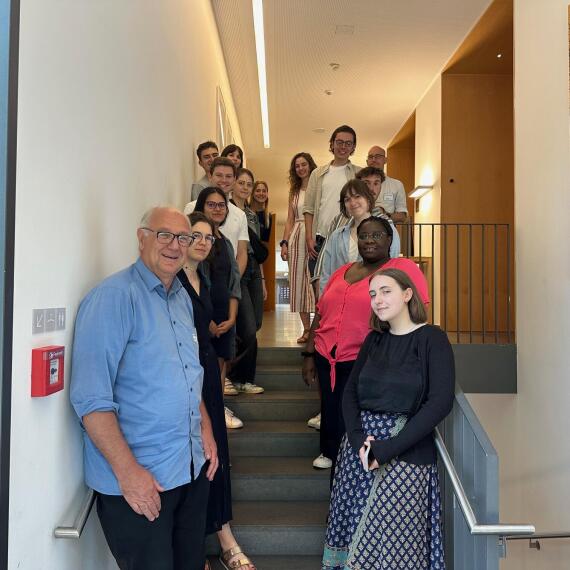
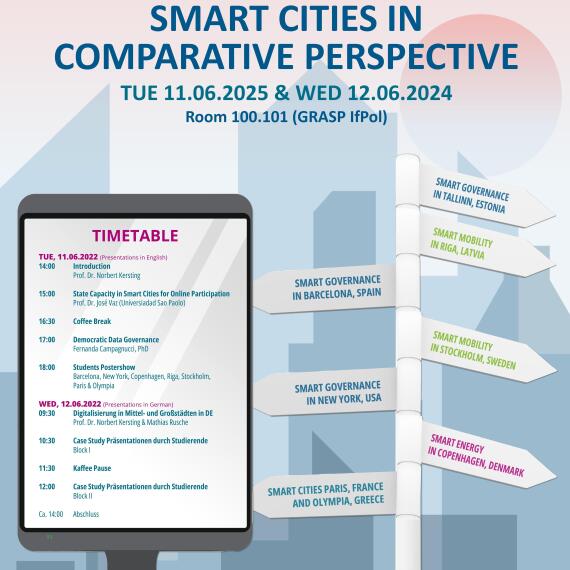
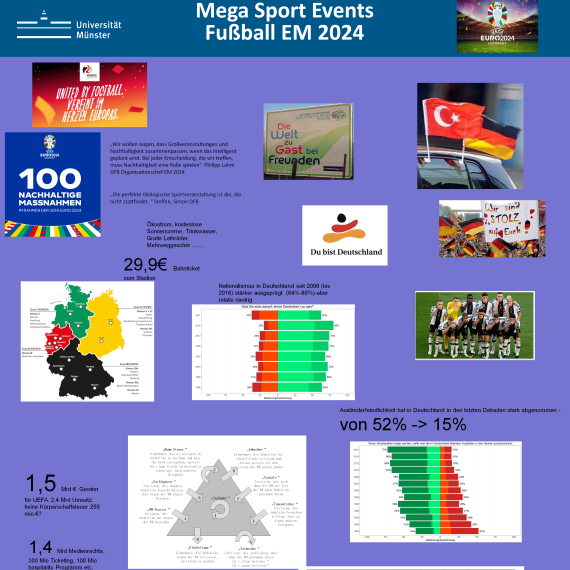
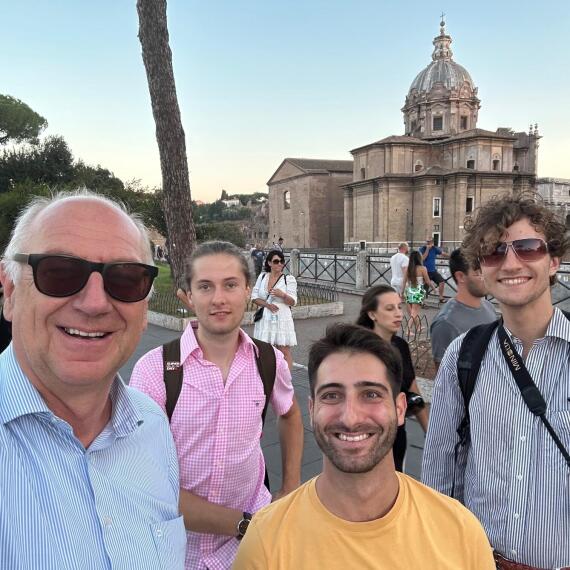


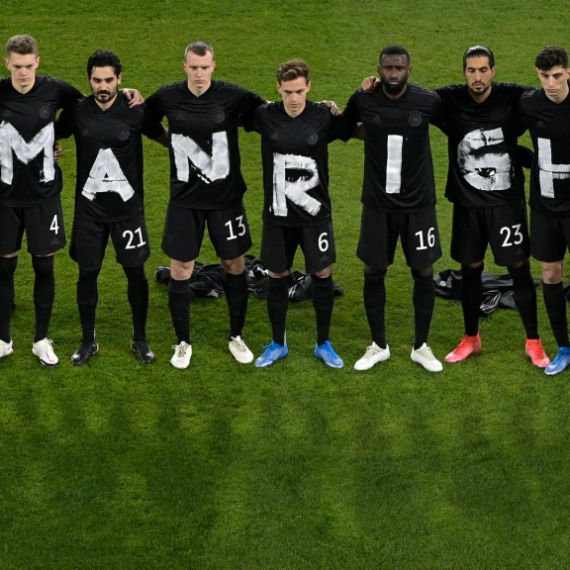





As part of Digital Day 2021, Prof. Kersting is hosting an all-day online event entitled E-Democracy and Sustainability on 18 June. In addition to presentations by students on various topics of network policy, there will also be a lecture by Prof Radtke from the University of Siegen. Anyone interested can dial into the event using the following ID: ID 912 5449 6691 PW 669899. We look forward to a lively participation.

The Wahl-Kompass for the municipal election on 14th of March 2021 in Frankfurt a.M. is online now. Here you can find the Voting Advice Application: Wahl-Kompass Frankfurt 2021

The "Kommunalwahlcheck" for the municipal election at 14th March 2021 in Wetzlar, Hessen is online. Here you can find the Voting Advice Application: Access the Kommunalwahlcheck Wetzlar 2021 here.

The Voting Compass is a scientific online Voting Advice Application (VAA), which is jointly developed by Prof. Dr. Norbert Kersting and Jan Philipp Thomeczek from the University of Münster with Kieskompas from the Netherlands. The latest project is published together with the Regionalverband Ruhr.

Webinar by Prof. Norbert Kersting (University of Muenster) together with Akademie Franz Hitze-Haus (Münster) on the topic: "Digitalisation and politics: Stress test Covid-19 pandemic" on German Digital Day 19.6.2020 10:00-12:00. (Admission 9.45 am)
The Covid-19 crisis highlights the strengths and weaknesses of digitalisation (infrastructure etc.) in Germany. The workshop will feature a virtual poster show and a live panel discussion on net politics, e-democracy and online participation with (inter)national colleagues. The expert panel will discuss the questions: What can digitalisation achieve? What can't it do? What can digitalisation not yet do?
In addition to the expert panel on Digital Day 2020, the webinar will include contributions on e-governance and the Covid-19 pandemic.

The project "New Participation and Old Inequality in Cologne", which is based at the chair of Prof. Norbert Kersting, has been investigating the engagement conditions of marginalised people in the city of Cologne since March 2020. On behalf of the Office for Public Participation of the Cologne City Administration, a quantitative survey and in-depth qualitative interviews are being conducted with people involved in local political organisations in the Cologne city area to find out about success factors and inhibiting factors for the political involvement of marginalised groups in society.
At the digital project meeting on 8 May, potential interview partners were identified and the upcoming completion of the online survey was discussed by the project team, consisting of Prof Norbert Kersting, Jan Kaßner and Lara Fregin. The project will run until the end of the year and is based on the project "New participation and old inequality? Political participation of marginalised people" by the vhw - Bundesverband für Wohnen und Stadtentwicklung e.V., which will be completed in June 2020.

The rise of populism is often portrayed as one of the most pressing challenges for the future of national and EU democracies. The consortium proposes to explore the roots of populist demands by combining political, economic and sociological factors as well as demand- and supply-side explanations. Overall, the proposed study aims to explore the socio-economic and cultural roots of European populism by analyzing both existing established datasets and data from new online surveys across 10 European countries during national elections occurring before the 2024 EU elections: United Kingdom, the Netherlands, Italy, Germany, Spain, Romania, France, Sweden, Hungary and Poland.
The proposed study is guided by the following research questions: How do socio-economic and cultural triggers of populist voting change both across countries and across the political spectrum (left-wing and right-wing populism)? How do populist parties' agendas (supply) influence populist voters (demand), and vice versa? How are 'push' factors of populist voting transformed into 'pull' factors, which move voters away from populist voting? The project allows for capturing the widespread socio-economic malaise affecting 'the squeezed middle' (intermediate segments of the population with a declining position) and for investigating the role of economic macro factors. The team has developed advanced techniques to link the online panels to probability sampling datasets and guarantee the representativeness of its findings. The approach will also use multilevel modelling to combine macro- and individual-level explanations of populist voting and to develop a policy toolkit. This toolkit will be discussed with EU policy makers and presented on several media channels. The cross-national consortium involves partners from four countries (Germany, Great Britain, Italy and the Netherlands) and contains internationally renowned senior academics, young scholars, and junior researchers.
Project period: 1st June 2020 - 31st May 2023
Funding sum: 998.000 €

The research project "New participation and old inequality? Political participation of marginalised people", the empirical work has now been successfully completed with the second reflection workshop. The workshop took place on Tuesday, 31 March 2020, as a video conference due to coronavirus. Steffen Jähn and Dr Thomas Kuder had therefore invited the vhw to a Zoom meeting. In the online conference, Prof. Dr Norbert Kersting and Jan Kaßner presented initial results from the field phase and then jointly analysed them with a view to factors that facilitate the engagement of marginalised people.
The final report, which is now being prepared, will also contain recommendations for political organisations and policymakers on how to mobilise marginalised people to get involved and how they can be included more in the engagement process.
The workshop was rounded off by the presentation of a chair project that has been investigating the conditions of engagement of marginalised people in Cologne since March 2020 and which draws on the content of the vhw project.

Research and lecture journey in Africa 2020 with lectures and research contacts amongst others at the University of Daressalam, University of Nairobi, Makere University-Kampala (Uganda), Stellenbosch University, Cape Town University, UNISA- Pretoria (South Africa).

Johannes Bauser successfully defended his PhD thesis "Erfolgsbedingungen für Bürgerbeteiligung: Einfluss kommunaler Entscheidungsträger auf Beteiligungsergebnisse am Beispiel LiquidFeedback" on January 10th 2020. First examiner and supervisor was Prof. Dr. Norbert Kersting, second examinor was Prof. Dr. Cristoph Bieber from the University Duisburg Essen. Congratulations!
In the last months of 2019 Prof. Norbert Kersting dedicated his time to research and lecture journeys in Latin Amerika and the USA where he held keynote speeches, lectures and established ties in research amongst others at the University of Sao Paulo-USP (Brasil), INTEC-Santo Domingo (Dominican Republic) and the University of Arizona, Phoenix (USA).







At the invitation of Prof. Dr Norbert Kersting, experts from academia and political practice met at NRW.Bank Münster on 13 November. Dr Karsten Nowak (Director of the Hessian Court of Audit in Darmstadt) gave a lecture entitled "The future of double-entry accounting and EPSAS - on the standardisation of public budgets" and thus took over the content-related part of the conference. In the subsequent panel discussion, Prof Dr Gunnar Schwarting Ingolf Deubel (former Minister of Finance of the state of Rhineland-Palatinate) shared their experience and expertise on the topic. Moderator Prof. Dennis Hilgers from the Competence Centre for Sustainable Municipal Finance Policy had his hands full trying to accommodate the numerous contributions from the finance officers who had travelled from all over NRW. One thing is clear after this conference: The four principles of double-entry accounting: Accountability, sustainability, intergenerational fairness and comparability are not as easy to reconcile as expected. In many municipal budgets in NRW, the accounting system is not yet as harmonious as the Hessian Court of Audit demonstrates. In a European comparison, Germany is one of the last countries, alongside the Netherlands, in which cameralistic budget management is still used. From the experts' perspective, it is particularly difficult to communicate to the partner countries that the future EPSAS must be harmonised with governmental double-entry accounting in order to standardise European accounting standards, also known as "EPSAS" (European Public Sector Accounting Standards). Dr Karsten Nowak pleaded for EPSAS to be urgently linked to a principle of prudence. This could be achieved, for example, by paying sufficient attention to the principles of objectivity, accountability, regularity and control relevant in Germany in the development of EPSAS, while largely excluding options and discretionary powers.

Andrew Matsiko successfully defended his PhD thesis "Local Taxes and ICTs in Uganda. Good Governance by Participation and Transparency" on November 12th 2019.
Fist exmaninor and supervisor was Prof. Dr. Norbert Kersting and second examinor Prof. Paul Kevenhörster. Congratulations!

As part of the project "New participation and old inequality? Political participation of marginalised people", an interim workshop on case selection took place on 1 October 2019 at the federal office of the vhw-Bundesverband für Wohnen und Stadtentwicklung e.V. in Berlin. The Münster research group led by Prof Dr Norbert Kersting was warmly welcomed by Steffen Jähn as project coordinator, Dr Thomas Kuder and Tilla Ziems from the vhw. At the workshop, Prof. Dr Norbert Kersting and Jan Kaßner first presented the current state of research on the political participation of marginalised people. Following this, seven cities were presented which, after extensive research, qualified for the shortlist due to their wealth of citizen-centred political participation instruments. The shortlist now includes a colourful mix of community organising platforms, social movement groups and neighbourhood committees in cities in North Rhine-Westphalia and northern Germany.
The project, which was launched in June in collaboration with the vhw, will now enter the field phase following the workshop and is scheduled for completion in July next year.

Jan-Niclas Gesenhues successfully defended his PhD thesis "Smart Energy in Mozambique - Drivers, Barriers and Options"on September 30th 2019. First examinor and supervisor was Prof. Norbert Kersting and second examinor Prof. Paul Kevenhörster. Congratulations!

In June 2019, IfPol launched the research project "New participation and old inequality? Political participation of marginalised people" under the direction of Prof. Norbert Kersting. The project is funded by the vhw - Bundesverband für Wohnen und Stadtentwicklung e.V. and will be completed in July 2020. As part of the project, the motivations, framework conditions and influence of the political engagement of marginalised people in Germany will be examined in particular. Prof. Kersting will be supported by Jan Kaßner (research assistant) and Linda Rüthers (student assistant), who will use interviews to ask those affected as well as experts about the self-perception and contextual conditions of the involvement of marginalised groups far removed from participation. Participation research has recognised that people with fewer financial, social, time and cognitive resources participate less politically. In addition, organisational aspects, including the interests of the marginalised, which are classified as weak in power theory, as well as institutional hurdles, inhibit engagement. The project reverses the previous research approach by asking why such people participate to a lesser extent, but nevertheless - despite the resource-based restrictions. The project also hopes to gain important insights into the conditions under which political participation can actually be inclusive. To this end, two cities will be examined as cases in which the marginalised will be identified and interviewed in three participation formats. The focus will be on bottom-up variants of political engagement, e.g. neighbourhood and citizens' initiatives; participation processes initiated by civil society, e.g. community organising platforms, as well as top-down participation forums such as municipal neighbourhood councils and future workshops.
Further information can be found at
https://www.uni-muenster.de/IfPol/Kersting/URII/index.html
https://www.vhw.de/
https://www.vhw.de/nachricht/politische-partizipation-marginalisierter-menschen-forschungsprojekt-startet/